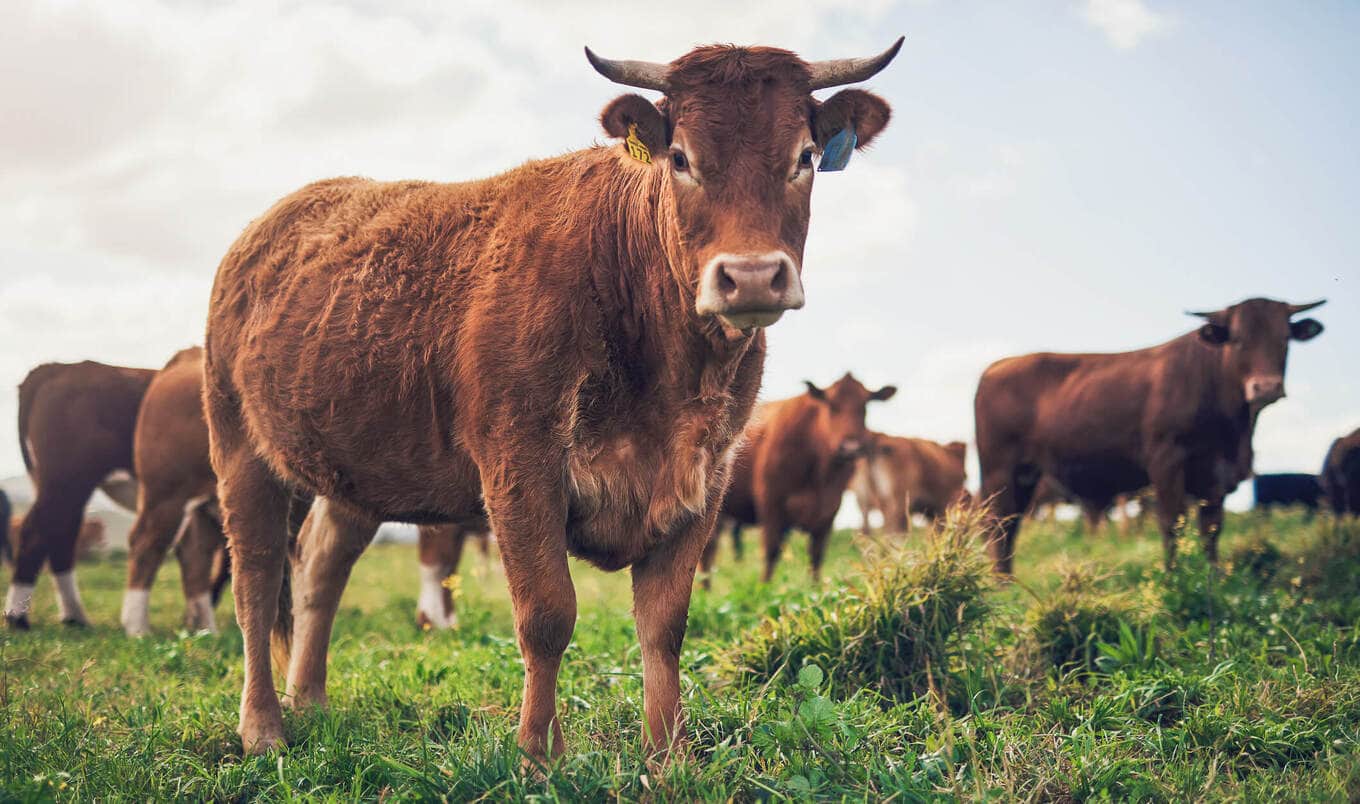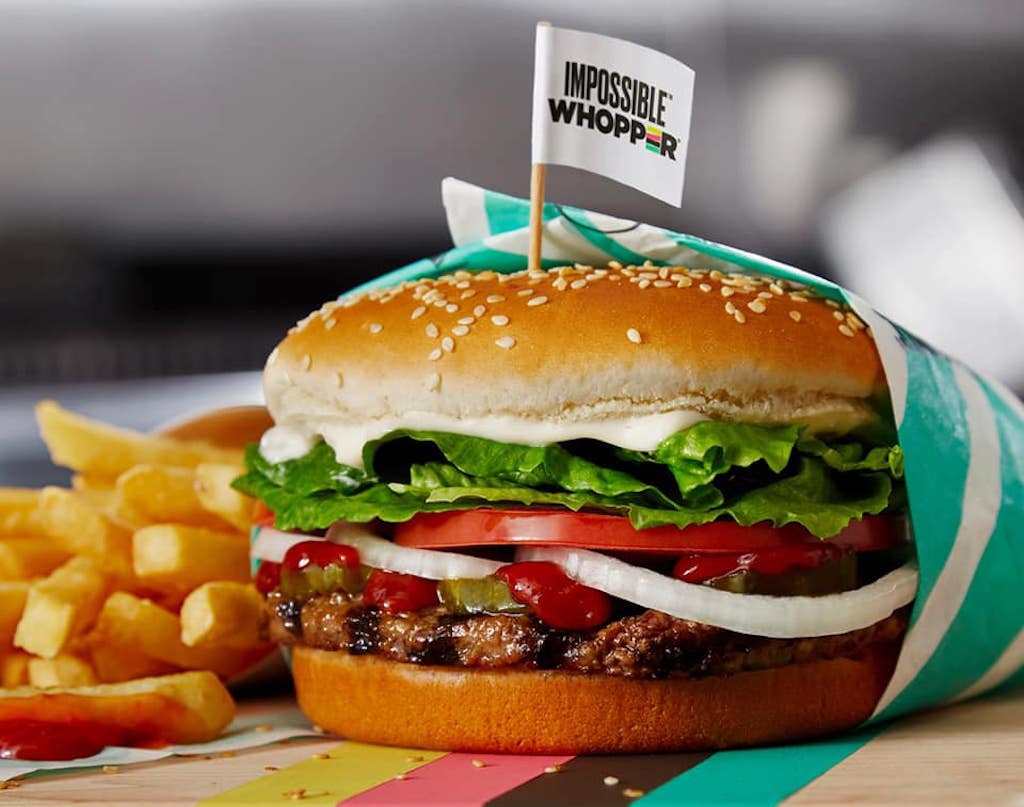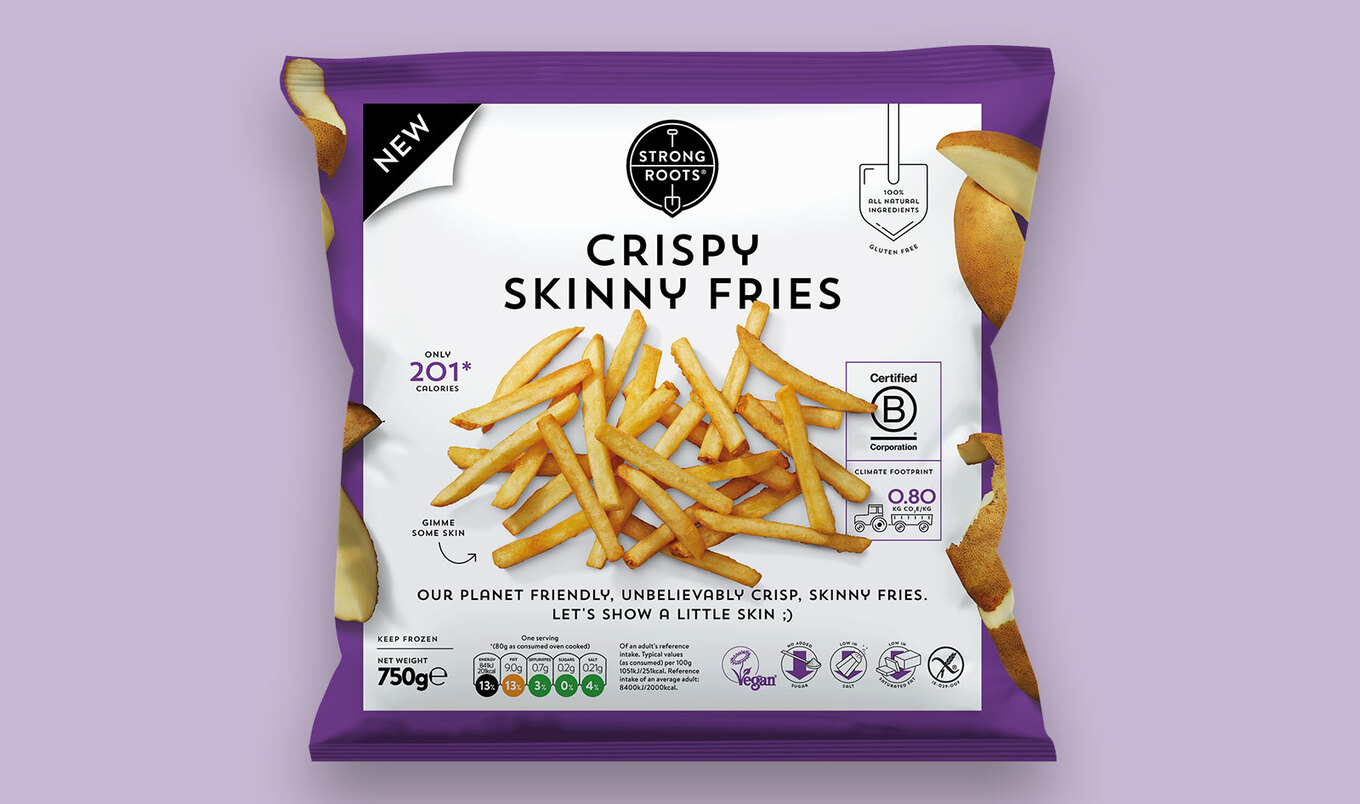Climate impact menu labels, especially for high-impact items like red meat, are an effective strategy to reduce red meat selections and encourage more environmentally sustainable restaurant choices, a new study found. The study, published in the Journal of the American Medical Association, hypothesized that because more than one third of Americans eat fast food on a typical day, fast-food restaurants are an important setting to encourage more environmentally sustainable food choices.
The study authors point out that animal-based food production, primarily driven by beef production, is responsible for 14.5 percent of global greenhouse gas (GHG) emissions and is a big contributor to climate change. In the United States, meat consumption (red meat consumption in particular) consistently exceeds recommended levels based on national dietary guidelines.

People Images
According to a previous study, shifting current dietary patterns toward more sustainable diets with lower amounts of red meat could reduce diet-related GHG emissions by up to 55 percent. Plus, many studies have also shown that diets containing less red meat also have health benefits, with evidence linking consumption of red meat with increased risk of mortality, cardiovascular disease, colon cancer, and type 2 diabetes.
One strategy to encourage more sustainable food choices is the use of sustainability labels on restaurant menus indicating the climate impact of each menu item based on its associated GHG emissions, or carbon footprint.
According to the study’s researchers, restaurants and cafeterias across the US are increasingly implementing sustainability labels, but label designs are not consistent across settings, and there is a lack of data on how these labels should be designed to help consumers make more informed choices.
The impact of climate labels on red meat
Previous research suggests that labels providing a negative signal that an item is environmentally unsustainable, such as items that produce high GHG emissions, may be more effective than those providing a positive signal that an item is environmentally sustainable. For this study, the authors wanted to test this evidence in a fast-food restaurant setting.

Stefa Nikolic
Researchers recruited a nationally representative sample of 5055 participants for an online randomized clinical trial from the National Opinion Research Center AmeriSpeak panel, and the survey-embedded experiment for this study was conducted from March 30 to April 13, 2022. The objective of this study was to test if positive or negative sustainability labels—compared with quick response (QR) code labels with neutral messaging—had a greater effect on adults’ fast-food restaurant menu choices.
After providing informed consent, participants were instructed to imagine they were in a restaurant and about to order dinner. They were then shown a fast-food menu and instructed to select one item they wanted to order for themselves. The menu was designed to mimic a large fast-food restaurant chain in the US and displayed 14 entrée items, including beef and plant-based burgers (from Impossible Foods), chicken and fish sandwiches, chicken nuggets, and salads.

Burger King
For the menu ordering, participants were randomized to view one of three menus, each with a different label: QR code labels on all items (control group); green low climate impact labels on chicken, fish, or vegetarian items (positive framing); or red high climate impact labels on beef items (negative framing).
Menu prices were based on real-world prices and the top of each menu featured a disclosure statement explaining the label’s meaning. After selecting an item, participants answered a brief questionnaire.
“We found that climate impact menu labels were effective compared with a QR code label at encouraging US adults to choose a more environmentally sustainable (ie. non-red meat) item from a fast-food restaurant menu,” the study says.
Specifically, the study found that labeling red meat items with negatively framed, high climate impact labels was more effective at increasing sustainable selections than labeling non-red meat items with positively framed, low climate impact labels.
More demand for plant-based fast food
The study notes that in recent years the restaurant industry has documented increasing consumer demand for vegan, vegetarian, and plant-based items. Several major fast-food chain restaurants recently introduced meat-free or meat-alternative menu items, and restaurant industry reports identified increasing sustainability as among the top restaurant menu trends in 2020.
Importantly, voluntary industry sustainability labels implemented to date have been positive labels pointing to low-GHG or sustainable items, such as the Cool Food pledge recently adopted by Panera rather than negative, high climate impact warning labels or traffic light systems (in which food items are labeled with a traffic light symbol, with green indicating a healthy item, yellow indicating an item with marginal healthfulness, and red indicating an unhealthy item).

Panera
This study’s results suggest that a negatively framed, high climate impact label may be more effective, yet the authors note this method may be more difficult to implement. “It is unlikely that industry would voluntarily adopt a negatively framed label approach; such an approach may need to be mandated or incentivized via legislation or regulation,” the study suggests. “However, negatively framed, high climate impact labels may easily be adopted in settings like workplaces, universities, hospitals, and other anchor institutions with carbon neutrality commitments.”
Climate labels encourage consumers to buy vegan food
Some vegan brands have started adding climate impact labels to their products to encourage consumers to buy more vegan food. Last year, Strong Roots became the first vegan frozen food brand to add this label to show the true environmental impact of its products.

Strong Roots
“Placing climate footprint and quantities of carbon details front-of-pack is a change for us, but it has a big impact in placing sustainability front-of-mind,” Strong Roots founder and CEO Samuel Dennigan previously told VegNews.
“Sustainability is at the forefront of all of our, and our consumers and customers’ actions and conversations, and we’ll always continue to make conscious efforts to provide environmentally responsible, positive food choices,” he said.
For the latest vegan news, read:
JUMP TO ... Latest News | Recipes | Guides | Health | Subscribe









